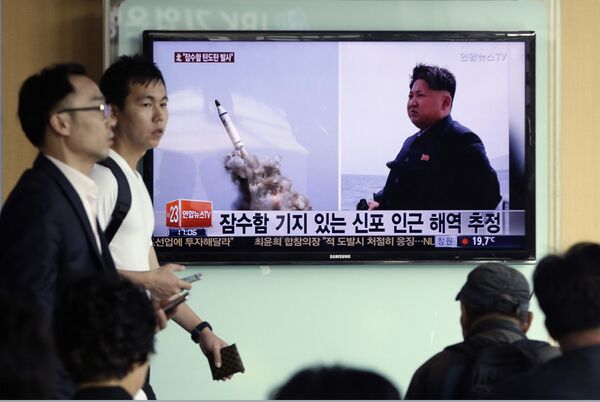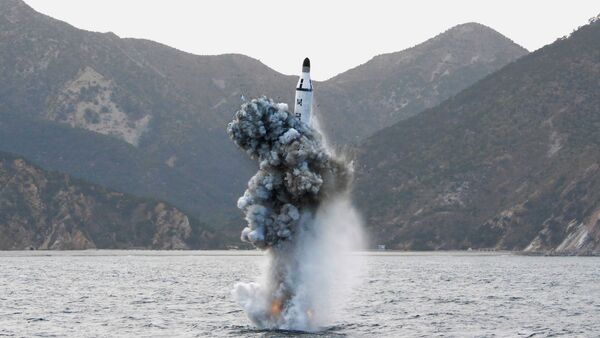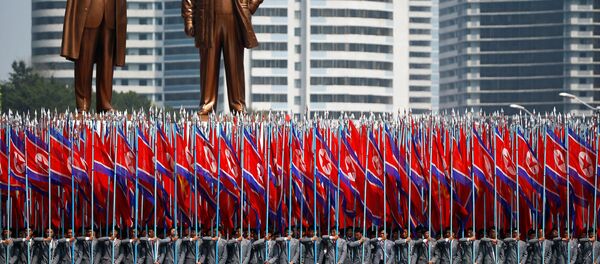The Pentagon detected "highly unusual and unprecedented levels" of North Korean submarine activity and evidence of an "ejection test," defense officials told CNN on Monday.
An ejection test examines the "cold-launch" system of submarine missiles. The system uses pressurized gas to propel the missile from its launch canister and the rocket engine ignites once it has left the submarine, which helps to prevent damage to equipment.
The report about North Korean submarines follows a series of intercontinental ballistic missile tests carried out by Pyongyang, most recently on Friday. The missile flew 732 kilometers (454 miles), reached an altitude of 681 kilometers (423 miles) and fell in the central part of the Sea of Japan, according to the Russian Defense Ministry.
North Korea, which has also conducted five nuclear tests, has been sanctioned in line with UN resolutions which forbid its nuclear and missile programs. The US claims that neighboring China could do more to reign in Pyongyang, a suggestion which Beijing rejects.

Aleksey Podberezkin, director of the Center of Military-Political Research at Moscow State Institute of International Relations, told Radio Sputnik that for political reasons, the Pentagon is exaggerating the scale of North Korea's submarine exercises.
"Right now, there is no North Korean missile system which threatens the US and there won't be for quite some time. Theoretically, in two or three years, one of its missiles might be able to reach the US coast. But now, this is just speculation that is being artificially created as an excuse to strengthen [existing] sanctions and impose military sanctions against [North] Korea."
"It's a normal launch, any sea-based missile comes out of the silo without launching the main engines. It is simply pushed out by compressed air," he explained.
"North Korea does not have any unique technology, it's impossible. Generally, there are only three, four or five countries that might have unique military technology, and even then only in some areas. Only large states are able to develop military technology and [North Korea] is not one of them."




